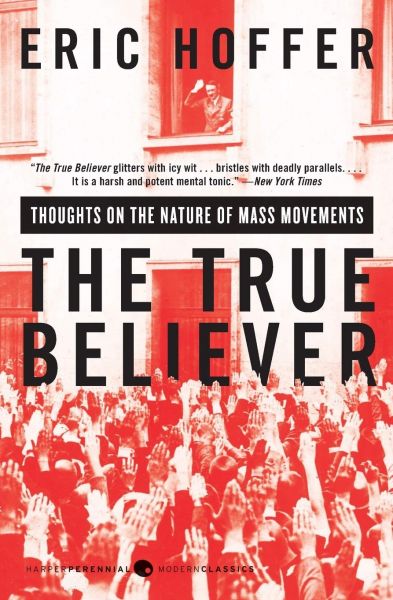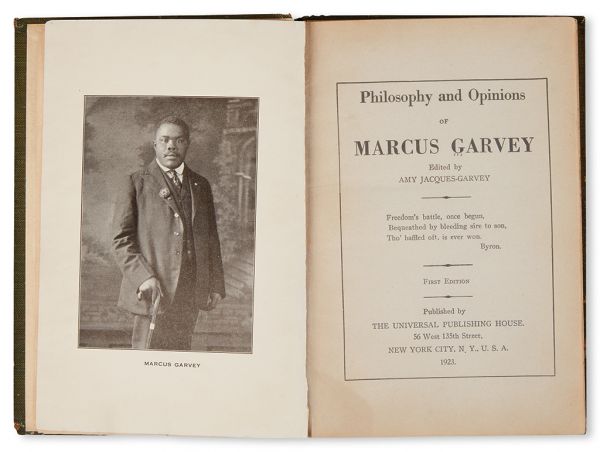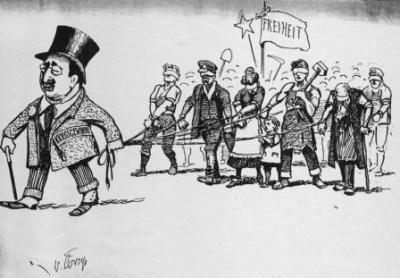Political Exit Strategies
"A Nation Divided Against Itself Cannot Stand"
A. Lincoln, June 16, 1858, from the Gospel of Luke 11:17
Who still believes that the United States is truly "united?" Who really believes that Democrats and Republicans have a congruent vision of the nation's future—how the nation should function and the means to make it work? Who still believes that the Democratic social-democracy can co-exist with the Republican constitutional-republic? If you value the one, you will hate the encroachments of the other.
Each political party complains about the divisive rhetoric of the other party, while also fanning the flames of partisanshp. The division in the political parties translates into division in the American electorate. It pitches the elections one way, then the other—half of the voters electing Trump in 2016; the other half electing Biden in 2020. The result in both cases rests on a small number of poorly-informed swing-voters. Oh, how their prissy moderation rankles dedicated voters!
The division in the political parties and the resulting division in the electorate create a real problem going forward that affects the functions of the nation, that erodes the confidence of the public, and weakens our secure way of life. The nation is not merely divided; it is divided against itself, as the future President Lincoln warned.
It's a matter of putting two and two together. If we do not have unity, we do not have a functioning society, but a sort of Cold War going on. Lots of propaganda to sway the electorate; lots of enmity to fuel the press-releases of each party and spur the work of media-centers; lots of tension and stress over stand-offs in Congress; suspicions about voter irregularities after each election; accusations of political machinations by the losing party. That should not define us! Lesser beings than a scientist or a professor can see the problem it presents. No other leading nation on the planet has it so bad as ours! The disunity shoots us in the foot.
Democrats and Republicans lack enough common points of interest to allow the nation to function coherently. They express their vision for the nation with each plank in the party platform. A defeat of one plank makes the other planks less coherent. Each party defends his party's platform fiercely and expends a great deal of time, effort, and money to defeat the other's platform. It causes a great deal of enmity. To see the how deeply the enmity runs, my reader must study the political campaign literature. An election takes a few months; the campaign goes on 24/7.
Like any partisan, human organization, political parties want to conquer. Human nature hard-wires the conquerer instinct and the tendency to speak of the other party in hostile terms. Even if you are not a party-member, you do internalize the scariness of it. We can only resolve it by dividing the country. We know it in our hearts.
All that remains is to decide if we have the character and courage to stake our future on the principles we espouse, to pull off a division, and to establish independent nations. I am no rabblerouser, and I am not trying to mess things up. I want a new nation that embodies the values that made the old one so great over the course ot 200 years.
Especially since Barack Obama—in his promise to fundamentally transform the nation—America has evolved. The left-wing agenda works contrarily to the forces that, in the opinion of Republicans, made the old nation great. If you believe that the Democrats want to cut the Republicans down to size, then you have to do something—cave in to the status quo of enmity and deadlock, or work out an exit-strategy.
Most of you have children. You will also want them to have courage and confidence in the future to give you grandchildren. They will not have any of that at the rate we're going. Until we resolve the disunity that is devouring the nation from within, they will inherit a nation that treats them hostilely, as if they are no longer citizens. Do you like the way the nation looks? Instead of grandchildren, the scared children will only want grand-dogs.
The political Right may win the so-called Culture War; the Left may win it; but the War of Attrition will be the real victor, because it will kill the spirit and perspective of the nation long before either side gains a victory. So the most that either side can expect is a Pyrrhic Victory, if we do not divide the nation instead.
To oversee the division and serve as caretaker while the process of the division is ongoing, we need an interim government to serve as a sort of Committee of Final Arrangements. It needs to maintain the function and logistics of a federal government and provide for the national defense during the vulnerable phase of the nation's transition, and then dissolve itself when the nation completes the division, or for however long it takes to work out the problems that arise from having new borders, sorting out of assets, as happens in a divorce. City hall officers will have a time updating the data in the deed room, tax assessments, banks accounts, intellectual property, or whatever.
It sounds like a monumental task, and so it should be since, at the conclusion, we need a sense of closure in order to move forward. For such tasks, lawyerss train year after year. They specialize in divorce, mergers and acquisitions, divestitures, and complex arbitrations. The Federal Government itself employs legions of negotiators, arbitrators, and litigators. Government agencies also write out contingency-plans for nearly anything. We will have to turn over to them much of the desk and leg-work for getting us out of this mess.
Who Still Believes We Can All Get Along?
1. Republicans are not very political. Most procedures of the government sail over their untroubled minds. They have a sort of faith in the nation as something sacrosanct and do not bother much with haranging and browbeating from the Left. They trust in buzz-words like liberty, unity, and patriotism, and count on the rest of the nation to pull its weight. They believe in the US Constitution but haven't given it a whole lot of thought.
Republicans have an accepting attitude about disunity, believing that everything will work out in the end. In spite of the calumnies they have to endure each day, Republicans almost never incite student unrest, workers' strikes, race riots, or any of that. Although they own the most firearms, they rarely use them. They have better things to do than disrupt our rich consumer society, or make enemies of other people.
Indeed, the writer Eric Hoffer—the Longshoreman Philosopher—gives us an astute analysis of our conflicted society in his book True Believer: "The inert mass of a nation is in its middle section. The decent, average people who do the nation's work in cities and on the land are worked upon and shaped by minorities at both ends—the best and the worst." Hoffer describes the "failures, misfits, and all those who have lost their footing" as working out their frustrations and personal resentment against "the ranks of respectable humanity. The game of history," Hoffer states, is "played by the best and the worst over the heads of the majority in the middle."
If Republicans really want to see how America has evolved, they need to talk to their children, who daily have to navigate the open society, encountering the bad along with the good. The parents need to understand that they and their children inhabit different worlds. The parents inhabit a controlled, untroubled social circle. Their children inhabit an increasingly bullying-media culture and have to deal with informational overload, and doubts about how the real world will receive them when they graduate. How much will they have to compromise on their beliefs just to advance?
If we hear someone described as a "political activist," we assume he belongs to the Democrat Party, with an ax to grind. About him, Hoffer writes, "The reason that the inferior elements of a nation can exert a marked influence on its course is that they are wholly without a reverence for the present. They see their lives and the present age as spoiled beyond remedy. . . . They also crave to dissolve their spoiled, meaningless selves in some soul-stirring communal activity." Earlier historians called it the politics of self-loathing.
This does not define Republicans, who believe in the greatness of America. After catastrophes like 9-11-01, we did not equivocate: the enemies of the nation are our enemies. Republicans throw their lot in entirely with America, as the land of the free and the home of the brave and. They can glance around at other countries and need little persuading that America is the greatest.
Grieving patriotic Americans, looking at the prospect of a division, will want to know a few things: What will happen to the flag? To the Capitol or the White House? Arlington National Cemetery and the Tomb of the Unknown Soldier—all the emotional facts that tie us to the nation we have known and loved? We remember that men and women have fought and died as a matter of principle for the institutions they represent—the American way of life we have known for generations. That can be worked out. It's not the end of the world. The End of something scares some people, but Starting Over scares them even more! They hate for events out of their control to upset their personal lives. They know just a few things amd try to jog along with that.
2. In contrast to Republicans, Black-Americans are the most politicized people in the nation today. Get the word out, and they will march at the drop of a hat: Black Lives Matter, Million Man March, and for the victims of police shootings. They never mention gaining independence from the whites, so the whites never mention it, either. No sense antagonizing the blacks, if racism, white privilege, fears of re-enslavement, and police-violence have the blacks on edge already.
But the whites stand back wondering, why are we still governing these angry, defiant black people? What on earth makes them want to stay with us, with their backs against the wall—sick to death of white racism and paranoid about re-enslavement? They could base the next Million Man March on a motion to declare their independence from the whites. The Congress would gladly accede to their demands and give them a country. Nationhood for blacks is on the table 24/7. The blacks could pull away from the whites anytime and declare independence for themselves.
The blacks are clearly hiding a few pieces of the racial jigsaw-puzzle from the whites. In fact, most whites already know they are, but say nothing because they know the blacks don't want to hear about it. Black outrage at the prying questions of white journalists and social scientists shuts down the only public venue for reviewing black problems with any level of honesty.
Black public figures direct almost all of their anger at white leaders, white attitudes, and privilege. It sounds so silly to ask this question in the face of so much anger, but if the blacks really feel that white leadership is bad for them, why are they still here? Trying to blame the whites for the rash of violence in black neighborhoods leads everyone down a blind alley.
The diversionary rhetoric leads a thinking-person to question black intentions. Have they lost faith in themselves and doubt the utility of independence? Has their dependence on the whites pushed them to the precipice of self-doubt?
I see this mostly in the way black leaders react to violent crime. As grocery stores, liquor stores, and other retail shops leave black neighborhoods, their leaders' railing against white racism and police brutality looks quixotic or disingenuous. The blacks rely too much on the whites already. To take on more responsibility for them presents some problems for both races.
The dichotomy of rhetoric and reality presents a confused picture of black life. Since our perception of black-life depends a lot on what black leaders tell us, someone needs to question black leaders on the pressing issues, if they will let us. What do the leaders see as important issues for the future of Black-Americans?
- Make sure the whites don't discredit or re-enslave us?
- Make sure they share some of what they got with us?
- Make sure they provide us some opportunity to advance?
Everything depends on pressuring the whites to make room for them. Is that as far as their analysis goes? What about a life apart from the whites, in an independent black nation based on black initiative and self-confidence? The average black person may not want to have his own country, but I suspect it is chiefly the black leaders themselves who like their position in white society and the perks they get from the white elites.
None of Black-America's present leaders talks about Marcus Garvey, but Garvey sums up the black dilemma best:
Response to NATIONHOOD on the plus side:
NATIONHOOD is the only means by which modern civilization can completely protect itself.
Independence of nationality, independence of government, is the means of protecting not only
the individual but the group. Nationhood is the highest ideal of all people.
Response to nationhood in the negative:
The political readjustment of the world means that those who are not sufficiently able, not
sufficiently prepared (to govern) will be at the mercy of the organized classes for another one
to two hundred years.
Every black person should read Garvey and get ready to discuss exit strategies.
3. The Democratic Party is also very politicized. One word seems to define the intentions of the Democrat Party better than most. That word is "fight." The Democrats want to fight for justice and equality, fair pay, gay rights, workers' rights, women's rights, and so on. But if they had their own country, they would not need to fight anybody! They could occupy a whole country—carved right out of the Old Country—and employ the existing physical assets and infrastructure to promote the solutions to the most pressing problems. The object of a division for both parties—Republican and Democrat—should be Live and Let Live.
Senator Elizabeth Warren, a former presidential contender, sums up the Democratic position in her recent book This Fight is Our Fight in 2018. She previously published A Fighting Chance in 2015. Most of the thousand-plus reviews on her Amazon-page rated her book positively. "Every American deserves a fair shot in life. . . . Ever since Reagan . . . the ultra-wealthy (have it made). (The) rest of us wait for the prosperity to trickle down."
Some of the negative reviews supported her stance but complained, "What I couldn't discern were economically viable solutions." Another reviewer wrote, "For most of the book, she is preaching to the choir." Her book would not "persuade those who don't already agree with her." Another review asked the question, "Where will the money come from?" Finally, reviewer wrote, "By talking about all the things we need to 'fight against,' the author in no way lays out a path ahead."
Obviously Warren has not shown us her full hand. The contrast between her and former President Trump should convey to my reader a big reason for Republicans liking Trump. He spoke honestly, roughly, off-the-cuff, like a man in a hurry, with a full plate of challenges.
Anand Giridharadas wrote the lead article for Time magazine's Dec 9th, 2019 issue, titled Party's Over: the Fall of America's Ruling Class. Just like Elizabeth Warren, Sheldon Wolin, and others like them, Anand offers little in the way of concrete policies, just moral outrage and a readiness to fight. The moral outrage against wealthy people reminds me of the Nazis smearing wealthy Jews, accusing the Jews of being a "dictatorship of the money-bags." Nazi caricatures show rich, sneering Jews exploiting poor German workers. It worries me to see that happen here.
And not once do Democratic politicians mention a division of the nation. No matter how much they may hate Republicans, capitalists, or just rich people, the Democrats have no intention of creating a nation apart from this one. Payback interests the Democrats more than nationhood, and no one wants to actually live in a nation founded on payback-grade moralisms.
We let other people bamboozle us occasionally; but most sensible people know they do not want to tie themselves to an untried nation inflamed with payback-fueled rhetoric. The Democrats would find themselves struggling to persuade people to live there.





